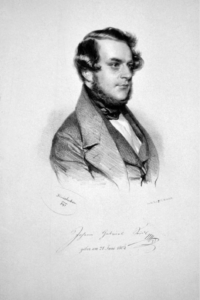Grave and moon
(Poet's title: Grab und Mond)
Set by Schubert:
D 893
for TTBB quartet[September 1826]
Silberblauer Mondenschein
Fällt herab;
Senkt so manchen Strahl hinein
In das Grab.
Freund des Schlummers, lieber Mond,
Schweige nicht,
Ob im Grabe Dunkel wohnt,
Oder Licht!
Alles stumm? Nun stilles Grab,
Rede du,
Zogst so manchen Strahl hinab
In die Ruh;
Birgst gar manchen Mondenblick,
Silberblau,
Gib nur einen Strahl zurück: –
»Komm und schau.«
Silver-blue moonshine
Is streaming down;
So many rays of light are sinking
Into the grave.
Friend of sleep, dear moon,
Do not remain silent about
Whether it is darkness that dwells in the grave
Or light!
Not a sound?! Now, silent grave,
You have to speak!
You pull down so many rays of light
To rest;
You hide so many of the moon’s glances,
Silver-blue;
Just give one ray of light back: –
“Come and look!!”
All translations into English that appear on this website, unless otherwise stated, are by Malcolm Wren. You are free to use them on condition that you acknowledge Malcolm Wren as the translator and schubertsong.uk as the source. Unless otherwise stated, the comments and essays that appear after the texts and translations are by Malcolm Wren and are © Copyright.
☙
Themes and images in this text:
Blue Gazes, glimpses and glances Graves and burials Night and the moon Noise and silence Rays of light Silver Sleep
In the 1826 edition of Seidl’s poems this text was headed with a Latin saying: ‘relata referre‘ (according to what has been said). It is as if the poet is passing on an overheard anecdote, the punchline of which involves an utterance from the grave. This is all the more remarkable since everything else around is silent. The moon refuses to comment; only the ‘silent’ grave speaks.
Silence and speaking are mirrored throughout the poem in images of darkness and light. The moon, as so often in German poetry, is presented as a sort of eye in the sky. The moon is actively looking (many people believed that eyes worked by emitting rather than absorbing light) at the grave, but the grave traps all the rays that enter it. That is why the question arises: Is the light hidden in the grave or has it been extinguished? The only way that we can answer the question is to go and ‘have a look’.
☙
Original Spelling Grab und Mond Silberblauer Mondenschein Fällt herab; Senkt so manchen Strahl hinein In das Grab. Freund des Schlummers, lieber Mond, Schweige nicht, Ob im Grabe Dunkel wohnt, Oder Licht! Alles stumm?! Nun stilles Grab, Rede du! Zogst so manchen Strahl hinab In die Ruh; Birgst gar manchen Mondenblick, Silberblau; Gib nur einen Strahl zurück: - »Komm und schau!!«
Confirmed by Peter Rastl with Schubert’s source, Joh. Gabr. Seidl’s Dichtungen. Zweiter Theil. Lieder der Nacht. […] Von Johann Gabriel Seidl. Wien. Druck und Verlag von J. P. Sollinger. 1826, page 41; with Lieder der Nacht. Von Johann Gabriel Seidl. Zweite, verbesserte und vermehrte Auflage. Wien, 1851. Druck und Verlag von J. P. Sollinger’s Witwe, pages 50-51; and with Joh. Gabr. Seidl’s gesammelte Schriften. Mit einer Einleitung von Julius von der Traun. Herausgegeben von Hans Max. Erster Band. […] Wien, 1877. Wilhelm Braumüller k.k. Hof- und Universitätsbuchhändler, page 41.
Note: the published poem is preceded by the following quote (1826): “– – – – relata referre!”, which becomes the following in the 1851 and 1877 editions: “– – – – relata refer!“
To see an early edition of the text, go to page 41 [49 von 190] here: http://digital.onb.ac.at/OnbViewer/viewer.faces?doc=ABO_%2BZ179729407


